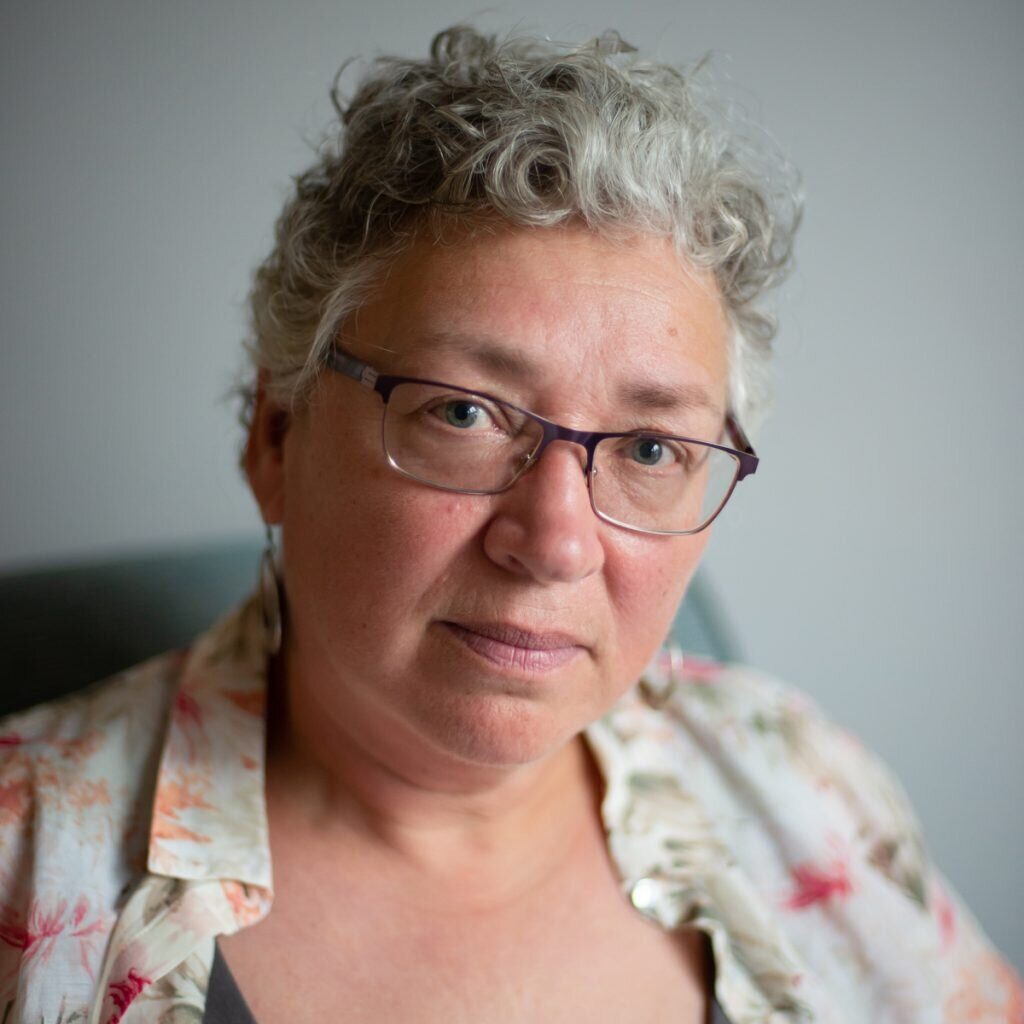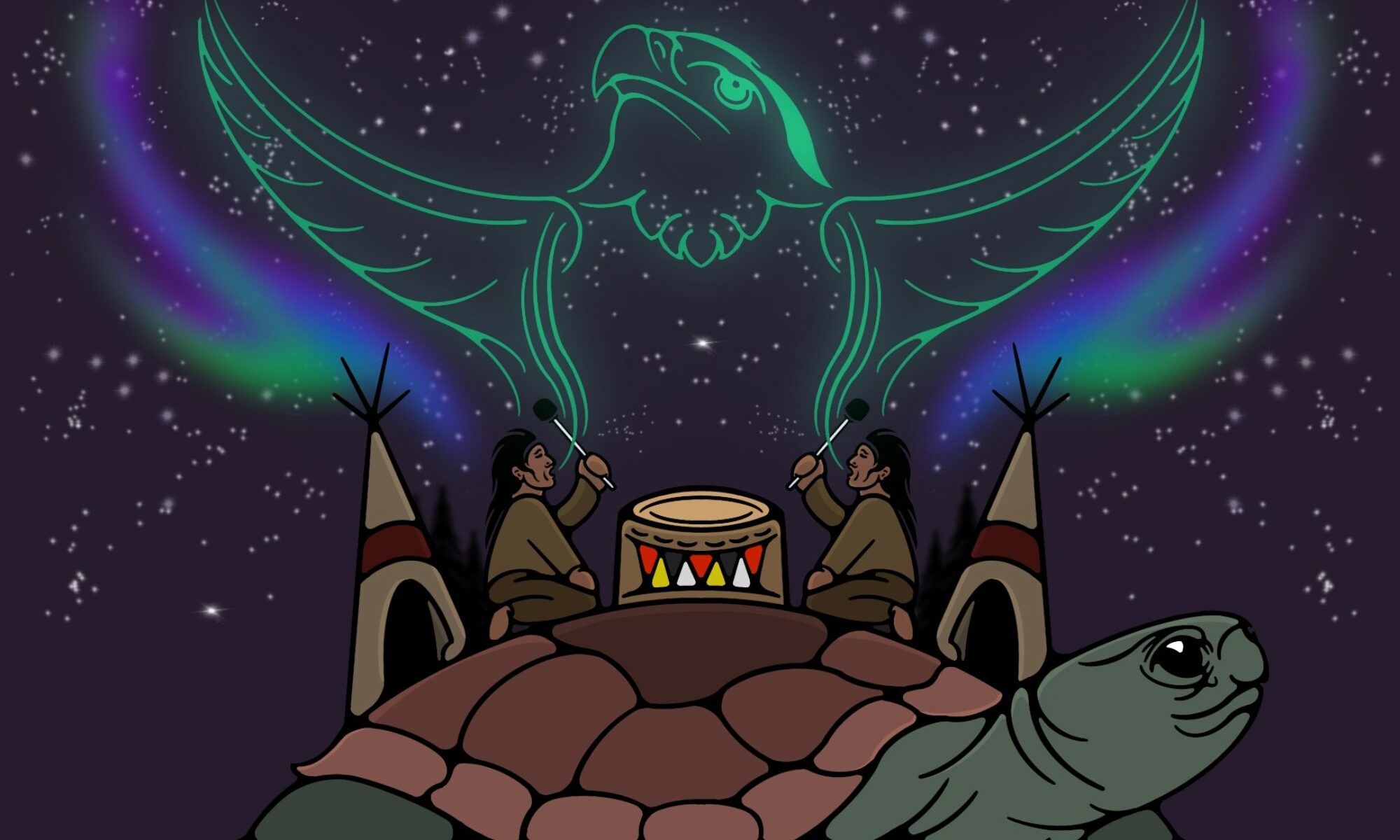
In both her art, writings and life, she highlights the abuses and consequences of systemic racism of the traditional ways of life of Indigenous peoples. The Indigenous teachings were passed along to her by her grandfather in Penosbscot Indian Island Reservation near Old Town, Maine. Her palimpsestic reflections on the passage of time are sensitive and striking, alluding to assimilation and heritage at the same time. The poems chosen for this selection are exemplary of these characteristics but the most famous poem from Mihku Paul’s collection of 34, “Jefferson Street School” speaks of her personal experience with White education, discrimination, social inequalities and cultural difference.
Mikhu Paul © 20th Century PowWow Playland (Bowman Books, 2012)
Introduction and selection by Sophie M. Lavoie
Mother Tongue
Stolen child, stranger with no name.
Her mouth has been sewn shut.
The songs, on their long flight,
years upon years, birth upon death, lost.
Mute witness, what silence is this?
Unfortunate demise, flesh and bone,
language we lived by,
scattered like pollen dust,
the trace of finest powder.
Possessed, our teeth clack and grind,
purpled lips slap and curl, a strangled wailing:
tuberculosis, dysentery, pneumonia.
One thousand ways to kill a thing, and
only one true way to save it.
Our words, shape of sounds no longer familiar,
buried at Carlisle.
Oh, Grandmother, we are wandering now.
The map obscured, ripped and bloodied.
We speak a strange tongue.
We are ghosts, haunting ourselves.
Amerindia
These hybrids roam from Mexico to Montreal,
honey-dipped, tea stained.
Their green eyes draw in light, glitter,
shards of broken mirrors.
Now we got seven years bad luck,
cousin, at least seven winters penance.
We are, all of us, cast on a burning wind.
Prayer words rise and fall,
red leaves Split from an ancient tree,
White feathers torn from a dove’s wing.
No cypher but the beating heart,
encased in this new-made flesh,
pounding ancestral rhythms.
In a thousand years, whose captive
face will hover, imprisoned in silvered glass?
What name will you call her,
whose eyes were your own, staring back,
as the mirror shattered and
the tree bore this new fruit?
20th Century PowWow Playland
In 1920, a centennial celebration, time measured,
commemorating that moment
when everything changed.
A separation, renaming territory, viciously tamed.
Carved and claimed, settled, the state of Maine.
Two faces stare out, children, sepia-toned, museum
quality, pressed to pages.
Boy and girl frown before the camera’s eye,
rigid lens of history, a dangerous weapon.
Thirty years since that last great dance in
the Dakotas, when bullets
traveled faster than the light
that traps these two.
Gathering ghosts, supplicants buried their hearts,
died on frozen ground.
Captive light blinds those young eyes,
lays bare the half-grimaced smiles.
Gone, the birchbark wigwam,
the buffalo hide tipi.
Backdropped by a canvas tent, the boy
dimpled cheeks smeared with “war” paint,
stands beside his sister, cousin.
Her banded braids hung with some cheap feather.
Children pose now,
war replaced by pageantry.
The wolf a legend, wearing
the skin of a leashed dog,
and the cold warrior’s eye, now closed,
steady hand empty, his battle cry
now silent in this fading picture,
this 20th century powwow playland.
More information on Mikhu Paul
Dawnland Voices. Writing of Indigenous New England.

One Reply to “Mikhu Paul. Three poems from 20th Century PowWow Playland”
Comments are closed.